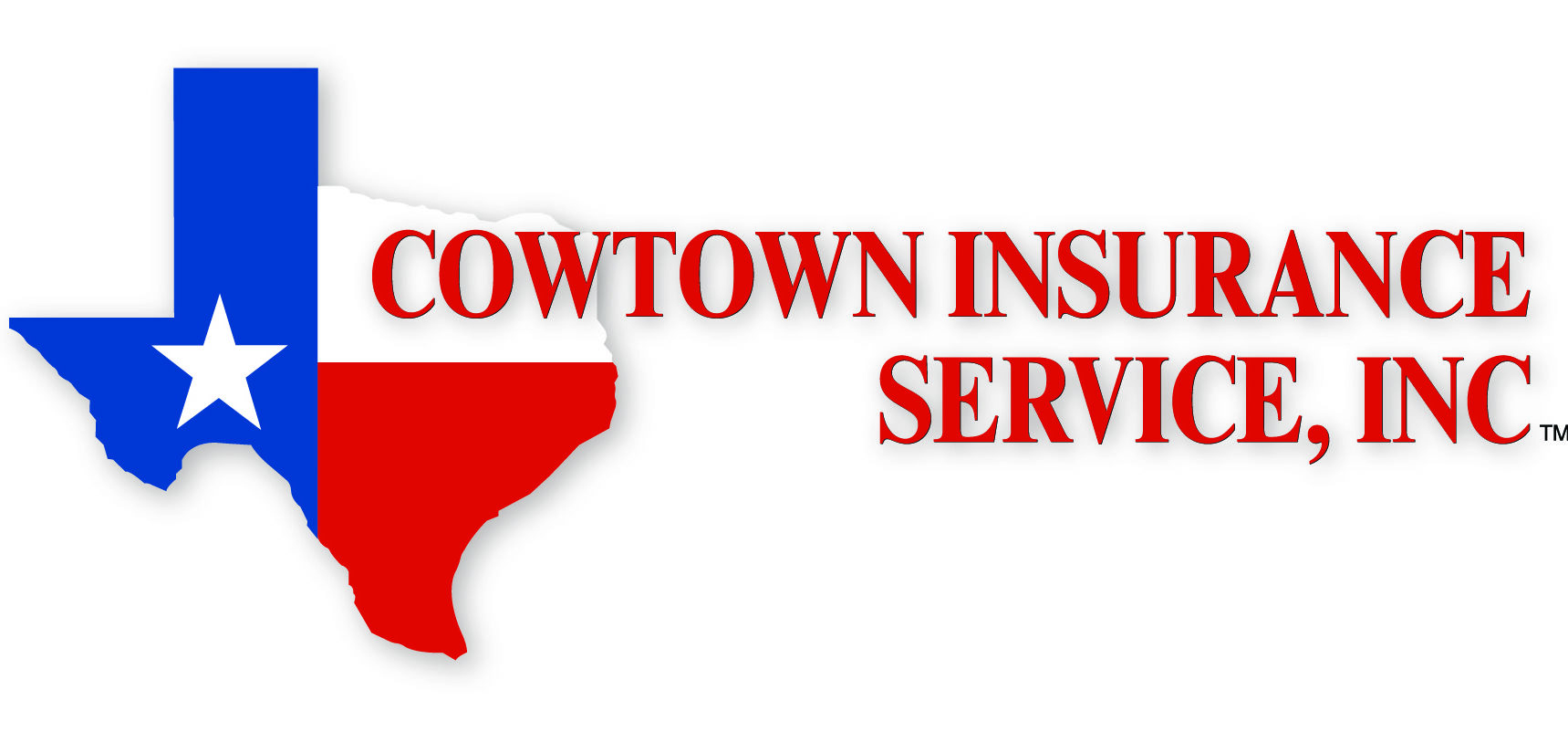Insurance 101
Choosing the right insurance plan for your employees can be a challenge. Here are some basics to get you off to a good start. In this basic guide to small-business health insurance you’ll find useful information to help you select an insurance policy. Choosing the right insurance for your employees is one of the most important decisions you can make for your company. With a little planning, forethought, and effort, you can make an informed decision about the right benefits for your employees, at a reasonable cost.
For your convenience, we have divided the topics into sections. If you have questions, I will be glad to review these subjects with you.
This guide is provided to you as a general overview of employee benefits. Every employer’s needs are different. Any advice in this article is general in scope. Please feel free to contact us at Cowtown Insurance Service, Inc. for a personal review tailored to your specific needs.

Insurance Types
HMO — Health Maintenance Organization
A primary care physician (PCP), who will be compensated by the insurance company, must be selected from the network at the time of enrollment. This PCP will manage all care provided to the insured person. In order to see a contracted specialist or receive services from a hospital, a referral must first be obtained from the PCP, except in cases of life-threatening emergencies. No benefits are provided if the insured goes out of the network.
PPO — Preferred Provider Organization
A network of doctors and hospitals that is generally much larger than an HMO. Unlike an HMO, the insured can choose a non-network provider. They have agreed to group pricing and will follow the procedures and policies of the plan. Lower fees are arranged with the network of providers, giving insureds a financial incentive to stay within the network. A higher cost or co-pay is generally required for medical services obtained from outside sources.
POS — Point-of-Service
Similar to an HMO, this healthcare delivery method requires selecting a primary-care physician (PCP), who coordinates the insured’s healthcare needs.
SHORT-TERM MEDICAL PLANS
These plans are generally much more affordable than a typical major medical insurance plan and have significantly lower premiums.
In addition to being much less expensive, short term insurance has four major advantages:
Keep your doctor!
- First, and most important, a short term medical plan can be used to pay for services from ANY doctor or hospital, with no restrictions… so yes you can keep your doctor!
- Second, short term health insurance plans can be obtained any time of year and are not limited to the Open Enrollment Period. You can apply anytime you want!
- Third, the application approval process takes only a few minutes. Use your new coverage the next day!
- Fourth, bears repeating: these health plans are much more affordable.
At Cowtown Insurance Inc., we provide the best healthcare solutions and are the leading providers of affordable short term health insurance plans.
Stand-Alone Life
This plan type provides life insurance but does not include any other coverage
Stand-Alone Dental
This plan type provides dental coverage but does not include any other coverage.
Insurance Coverage
COBRA Benefits — The Consolidated Omnibus Budget Reconciliation Act of 1985 (COBRA) requires companies with 20 or more employees to offer individuals who would otherwise lose their insurance coverage as a result of termination the option to continue their group healthcare coverage. Some states require that smaller companies — as few as two employees — offer terminated employees the ability to extend their coverage.
Covered Health Services — There are many differences between the thousands of insurance plans available today, but every major health plan covers the following expenses:
- Treatment of illness, disease, and accidents
- Medical, surgical, and emergency care
- Inpatient (hospital room) and related services
- Outpatient treatment
- Doctor visits and treatment
- Nursing services
- Diagnostic care (such as, X-rays)
- Prescription drugs
- Dental, vision, and hearing care due to accident or injury
- Pregnancy and childbirth
- Durable medical equipment purchase or rental
- Specialty care (such as, intensive-care unit)
- Any other medical necessity
Common exclusions include the following:
- Work-related injuries covered by worker’s compensation
- Services not recommended by a physician
- Charges deemed to be beyond customary and reasonable
- Cosmetic surgery
- Experimental procedures
In addition, some states require that insurance companies provide coverage for mental-health and/or substance abuse. Most insurance companies, of course, allow additional coverage to be added to a policy with a related change in the premium amount.
Dental Care — Dental care can either be part of a medical policy or it can be a separate policy altogether. Basic dentistry services are covered, and orthodontics and surgical procedures, although usually not included, can be added for an additional charge. Routine examinations and cleanings are usually provided free of charge. One important point to remember, however, is that most dental-care plans have an annual maximum. Any costs exceeding this amount are not covered.
Obtaining Insurance
– Some Issues –
Decide Who Should Be Covered — Before selecting a group health plan, you must decide who will be covered. It is traditional to cover only full-time employees who have been with the company for a certain amount of time. Coverage can be extended to include spouses and other dependents, as well as part-time employees. Insurance companies generally impose minimum requirements on the definition of dependents, and, once these requirements are in place, you are obligated to remain consistent with regard to who qualifies for coverage and who does not. To alter this definition after it has been established or to give the impression that the definition differs depending on the individual could be a violation of state and federal discrimination laws.
Deductions for Benefit Premiums — In most cases, employees pay for a portion of their insurance coverage. The employer often deducts these costs from their paychecks. Insurance carriers generally provide companies with all the forms needed to handle this. In many cases, these documents are completed at the time of enrollment. Always be sure to get written permission from employees before deducting anything from their paychecks. Deductions from Section 125 Plans are from gross rather than net income (in other words, they are pre-tax).
Enrolling Employees / Changing Coverage — After eligibility requirements have been determined, it is important to provide employees with straightforward information on the plans available and any deadlines that apply.
Employee-benefits plans typically impose limitations on when you or your employees can make any changes to the existing coverage. These are often events such as:
- Marriage
- Death
- Birth or adoption
- Changes in the employment of an employee’s spouse
- Changes in work hours
- Unpaid leave of absence
Gathering Employee Information — To obtain group health insurance, certain information is required. This is commonly known as the census. The census covers all pertinent information on each employee who will be enrolled in the plan. The information most commonly asked for includes the following:
- Full name of each employee
- Age or date of birth
- Gender
- Home address
- Information on any dependents who will be covered
Opting Out of Insurance — Some employees may want to forego the insurance coverage if they are already covered under another plan, such as a spouse’s group insurance, or if they feel they can’t afford the additional expense. You can a) allow them to do so, or b) require that they obtain coverage regardless. If they do opt to decline coverage, be sure to obtain this in writing for your records. This confirms that the employee was given an opportunity to enroll and that he/she understands any restrictions that may apply to future participation. Remember, however, that if employees are expected to pay for part of their premiums, they should not be forced to enroll.
Reading and Comparing Proposals — When researching insurance plans, you will obtain many different proposals. That is why Cowtown Insurance offers simple comparisons of each plan’s features. The most important factors to check are the following:
- Premium schedule — cost per employee per month
- Benefits schedule — general overview of the benefits provided
- List of doctors in the network
Administering the Insurance Plan
Acting as Employee Liaison — Employees generally expect their employer to assist them if they run into any problems concerning their insurance policies. These difficulties typically include things such as getting new insurance cards or getting claims paid in a timely manner. Even if your company has a designated individual to deal with insurance matters, employees will almost always speak to the employers first.
Always remember that your employees’ concerns are valid and should be addressed. In most cases, you simply need to have your employees contact member services at the insurance company. When they do so, it is important that they have their insurance cards, group and employee numbers, and claim numbers, as well as the names and dates relevant to the claim. Be sure to have them document any problems that arise.
If this is not sufficient and you must become personally involved, contact your insurance broker or the customer-service representative at the insurance agency. They will usually get the problem resolved quickly.
Administering Your Health Plan — Most administrative functions are handled by the insurance company through which you have coverage. You are still responsible, however, for a fair amount of work. The primary tasks include the following:
- Enrolling new employees and making status changes as needed
- Deducting premiums from employee wages and remitting them to the insurance company within the grace period allowed under the policy
- Acting as liaison between employees and the insurer
- Terminating benefits and extending COBRA coverage
- Complying with reporting and disclosure requirements
Terminating Benefits — If an employee leaves the company, you must terminate that individual’s coverage (this is done easily using forms provided by the insurance carrier) and provide the employee with an offer to extend health benefits according to COBRA and any state laws that may apply.
Conclusion
This has been a brief overview of employee benefits. As with any subject that is complicated in its details, you should always consult an expert in your decision-making process. An insurance broker can answer any additional questions you might have after reading this primer as well as guide you in planning benefits for your company.
We specialize in providing the very best in benefits to the small business owner. This includes group health insurance, dental plans, life insurance, disability, and retirement.
